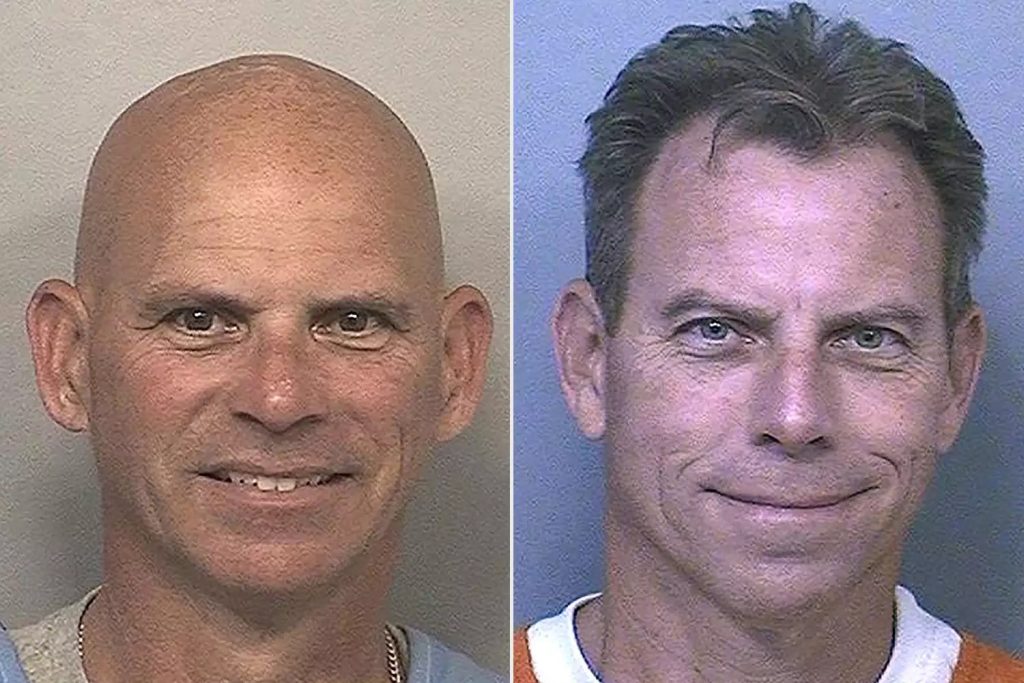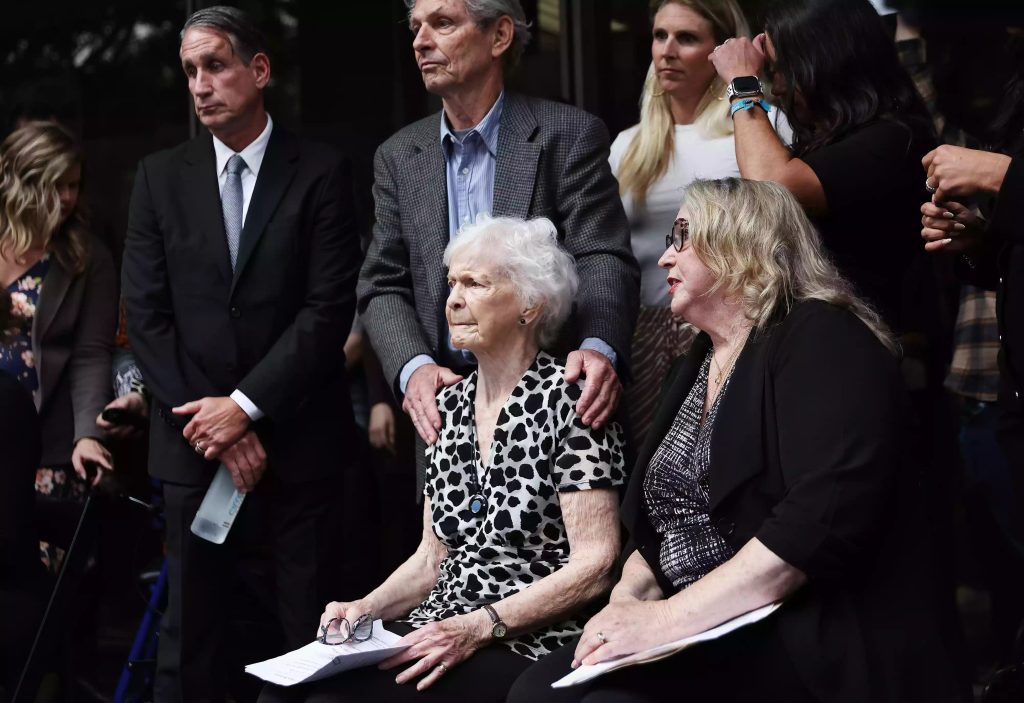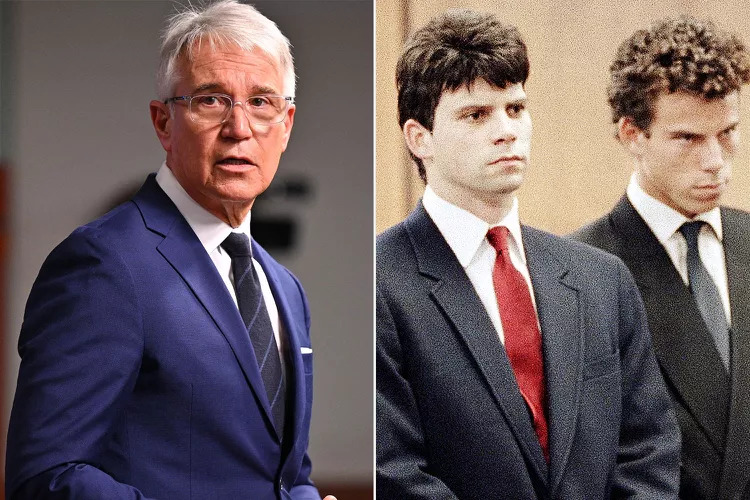Pathostheatre News
Menendez Brothers’ Resentencing: Why Prosecutors Say They Are No Longer a Danger to Society
The Menendez brothers, Erik and Lyle, convicted of murdering their parents in 1989, are making headlines again as a potential resentencing looms. New evidence regarding childhood sexual abuse by their father, combined with the Los Angeles District Attorney’s claim that they are no longer a danger to society, has sparked renewed debate over their fate. This article delves into the key aspects of their case, the arguments for and against resentencing, and its broader implications.

The Menendez Brothers Case: A Notorious Crime
The Menendez brothers were convicted of first-degree murder in 1996 for the brutal killings of their wealthy parents, José and Kitty Menendez, in their Beverly Hills mansion. Their case captivated the public due to the shocking nature of the crime and the brothers’ defense, which centered on years of sexual and emotional abuse by their father. While the prosecution argued that greed motivated the killings—pointing to the brothers’ lavish spending spree afterward—the defense maintained that the killings were driven by fear and desperation. This complexity continues to fuel public interest in their case decades later.
New Evidence of Sexual Abuse and its Role in Resentencing
Since their conviction, new evidence has surfaced supporting the brothers’ claims of sexual abuse. Erik Menendez had written a letter to his cousin detailing the abuse months before the murders, a piece of evidence that was not available during the original trial. Additionally, former Menudo band member Roy Rosselló has come forward, alleging that José Menendez sexually assaulted him in the 1980s. This newly discovered testimony has significantly strengthened the Menendez brothers’ case, as it corroborates their long-standing claims and raises questions about whether the original trial fully accounted for their traumatic experiences.

DA’s Position: Rehabilitation and Public Safety
Los Angeles County District Attorney George Gascón has publicly stated that the Menendez brothers no longer pose a danger to society. After nearly 35 years in prison, Gascón believes the brothers have been rehabilitated and should be given a second chance. He has acknowledged that while the murders were heinous, the brothers were not lifelong criminals, nor did they pose a continuous threat to others. The DA’s position reflects a more modern understanding of trauma, sexual violence, and rehabilitation, contributing to the growing push for resentencing.
The Argument Against Resentencing: The Weight of the Crime
Despite the new evidence and claims of rehabilitation, there are strong arguments against the resentencing of the Menendez brothers. Detractors argue that the brothers planned and executed their parents’ murders in cold blood, motivated by greed and a desire for financial independence. Their post-crime behavior, which included extravagant spending, is often cited as evidence that they were not acting out of fear but rather seeking material gain. Some prosecutors and members of the public believe that the severity of the crime warrants life imprisonment without the possibility of parole, regardless of any subsequent rehabilitation.
Broader Implications for the Justice System
The Menendez brothers’ case brings to light critical issues surrounding the criminal justice system, including how new evidence can reshape a narrative and whether lifelong imprisonment is justified in cases of severe trauma. The case is part of a larger conversation about the treatment of inmates who have been convicted of violent crimes but later show signs of rehabilitation. If the brothers are resentenced, it could set a precedent for how the justice system handles cases where new evidence of abuse and mental health factors emerge after conviction. This shift toward recognizing the importance of rehabilitation could have far-reaching effects on similar cases in the future.

The Menendez brothers’ potential resentencing has reignited a complex and emotional debate about crime, punishment, and rehabilitation. With new evidence of abuse and a DA advocating for leniency, their case underscores the evolving perspectives on trauma and justice in the legal system. Whether they will be resentenced remains uncertain, but the case highlights the enduring impact of one of America’s most infamous family murders.
FAQs
- Who are the Menendez brothers? Erik and Lyle Menendez were convicted in 1996 of murdering their parents, José and Kitty Menendez, in 1989.
- What new evidence has emerged in the case? New evidence includes a letter written by Erik detailing abuse and allegations from Roy Rosselló, who claims José Menendez sexually assaulted him in the 1980s.
- What is the current stance of the DA on the Menendez brothers? DA George Gascón has stated that he does not believe the brothers are a danger to society and supports considering resentencing based on their rehabilitation and new evidence.
- What were the Menendez brothers’ motives according to the prosecution? The prosecution argued that the brothers killed their parents out of greed, citing their lavish spending spree following the murders.
- What are the broader implications of the Menendez brothers’ case? This case may influence future discussions on rehabilitation, trauma, and the justice system’s treatment of inmates who present new evidence post-conviction.
- Has a decision on resentencing been made? As of now, a decision on the resentencing of the Menendez brothers is expected soon, but the final outcome will be determined by a judge.
From Pathostheatre


